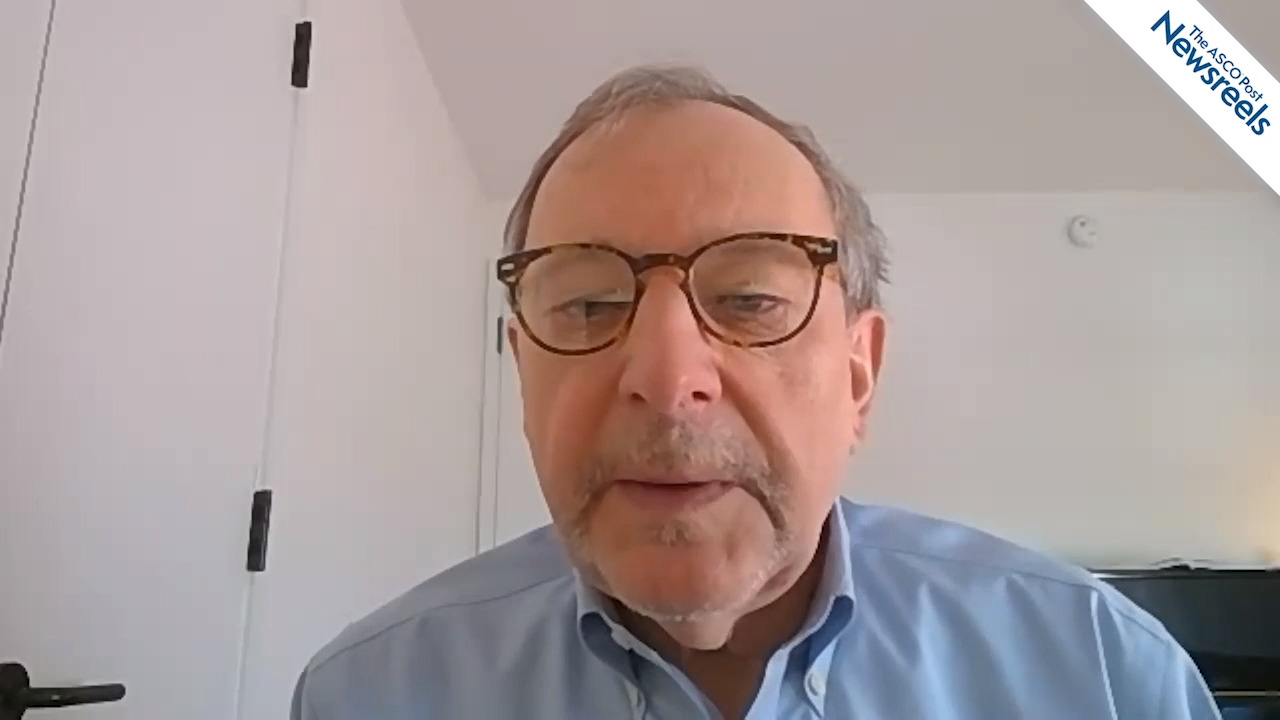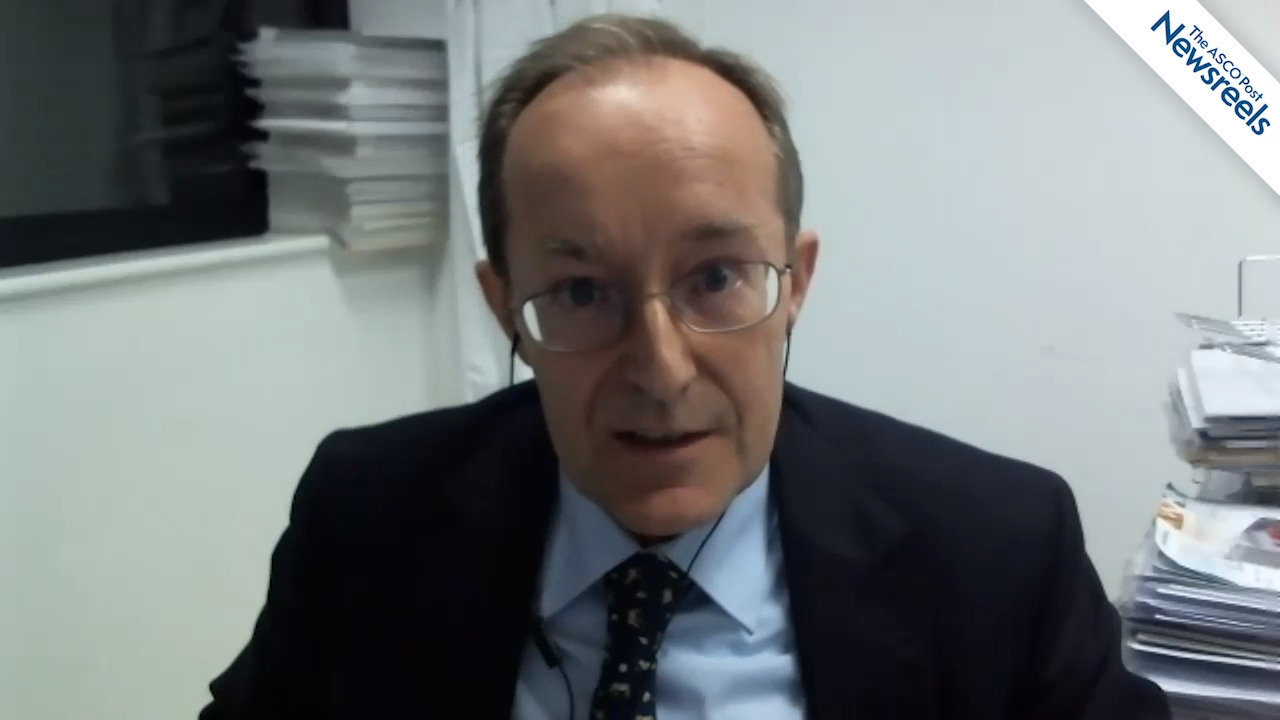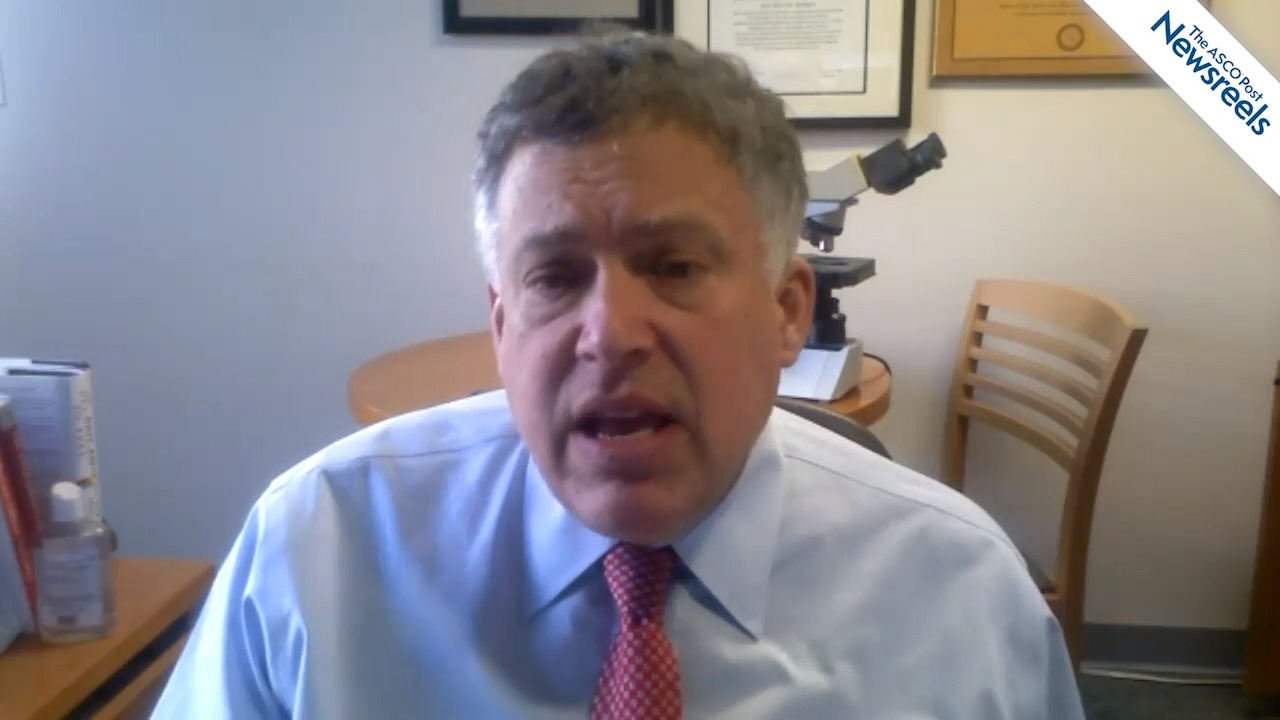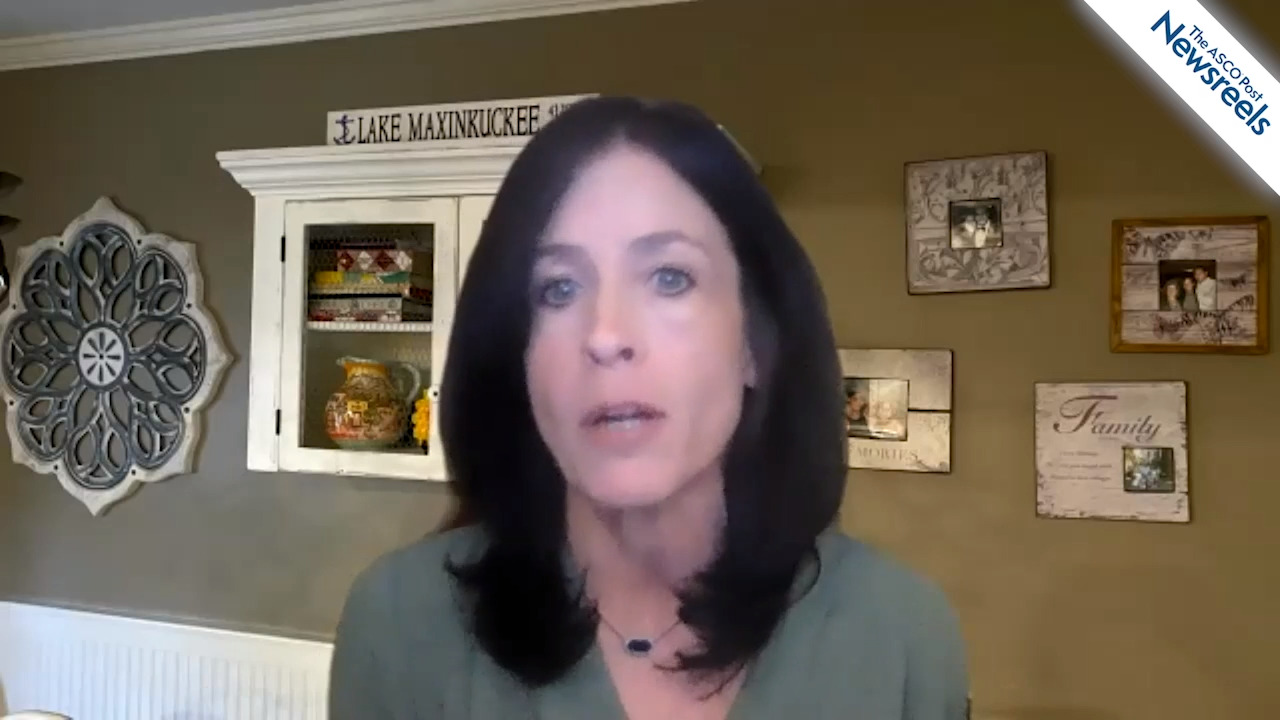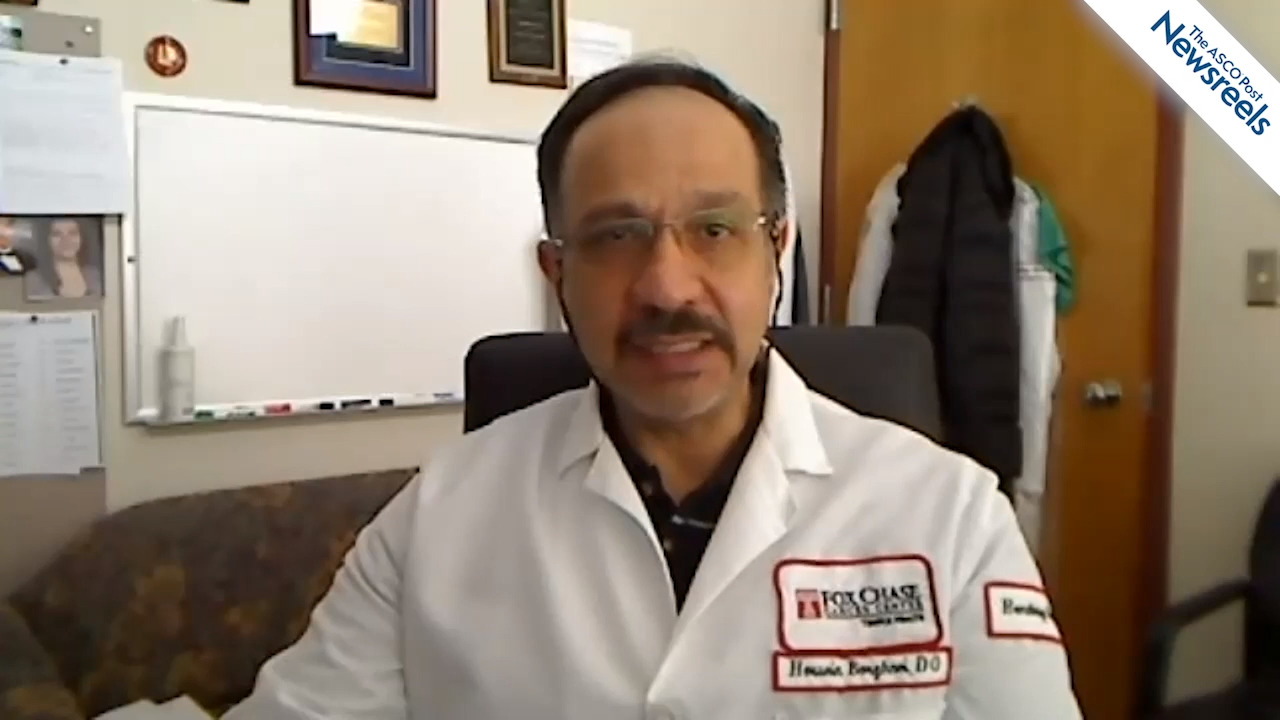Martin Reck, MD, PhD, on NSCLC: Pembrolizumab, Platinum Chemotherapy, and Radiotherapy in Advanced Disease
IASLC 2020 World Conference on Lung Cancer in Singapore
Martin Reck, MD, PhD, of the LungenClinic, discusses the results from KEYNOTE-799, which explored a new strategy to increase the intensity of treatment in patients with unresectable, locally advanced, stage III non–small cell lung cancer (Abstract OA02.03).
The ASCO Post Staff
Fred R. Hirsch, MD, PhD, of Mount Sinai Medical Center, discusses Lung-MAP studies in which a higher tumor mutation burden determined by next-generation sequencing was linked to overall and progression-free survival across two immunotherapy trials, and was independent of PD-L1 status (Abstract OA01.04).
The ASCO Post Staff
Luis M. Montuenga, PhD, of the University of Navarra, discusses the potential contributions of biomarkers, promising biomarker panels being tested and published, the need to standardize biospecimen collection, and how to improve the sensitivity of these biomarkers (Abstract PL05.06).
The ASCO Post Staff
Roy S. Herbst, MD, PhD, of Yale University, discusses results from the LUNG-MAP Master Protocol, which support the planned use of circulating tumor DNA for enrollment onto LUNG-MAP substudies, with a positive finding meriting inclusion in study; a negative finding, while considered inconclusive, requires the use of tissue samples (Abstract MA08.10).
The ASCO Post Staff
Jill Feldman, a patient advocate and lung cancer survivor, discusses the current challenges and potential solutions to including more people of color and those in underserved communities in clinical trial research (Abstract PL04.06).
The ASCO Post Staff
Hossein Borghaei, DO, of Fox Chase Cancer Center, discusses phase I results from a study of AMG 757, an experimental bispecific T-cell–engager (BiTE) immune therapy aimed at the DLL3 molecular target in patients with small cell lung cancer. At this early stage, results show clinical efficacy and safety, with 37% of 51 evaluable patients exhibiting disease control (Abstract OA11.03).
